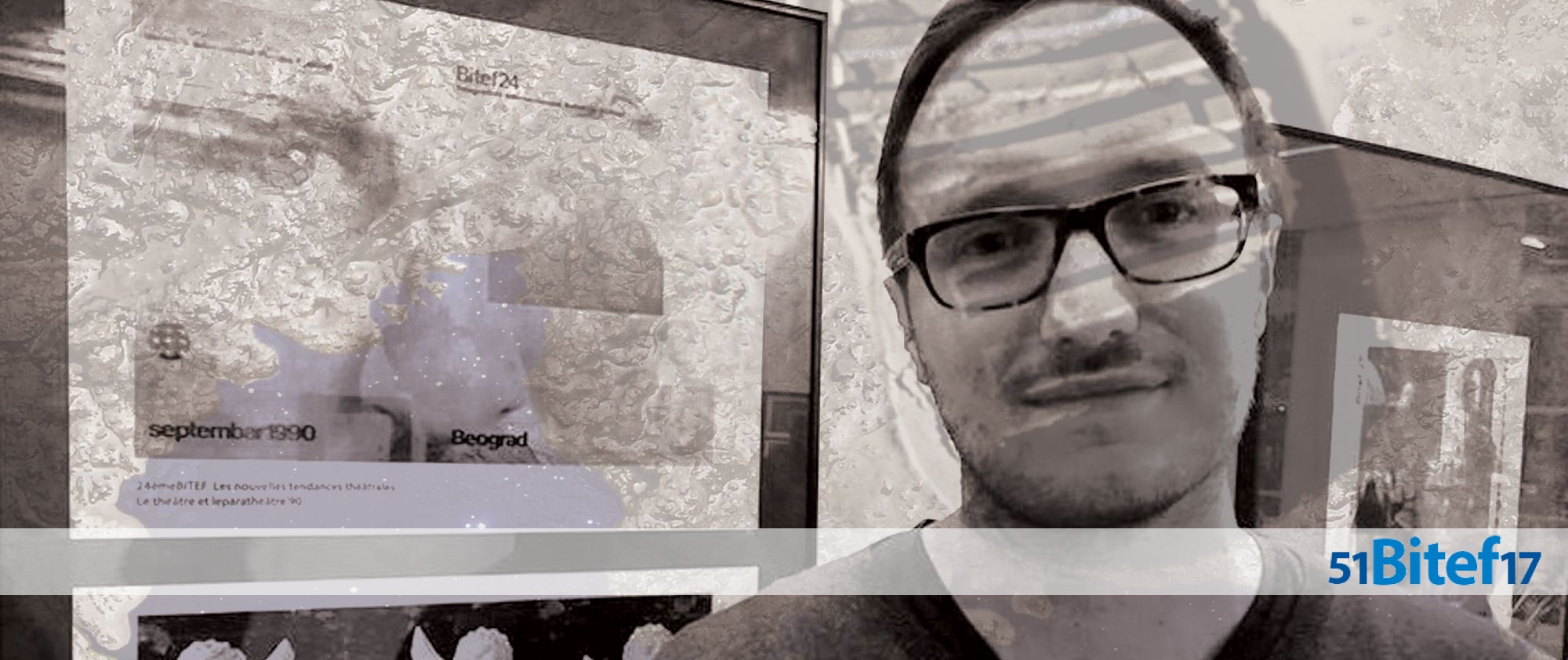You are a Frenchman from Lyon, currently living in Paris, but you also spent a couple of years in Berlin. You have attended the event in Serbian Cultural Centre in Paris, where Bitef presented its 51st edition, which brings mostly German-speaking performances to Belgrade this year. What is your opinion of that cultural and curating policy?
First, I have to say that I haven’t had a chance to visit Bitef yet. I know of it by reputation, and some reputation that is! But I am planning to come and I will come next year. Since many performances are from the German-speaking region, specialized journals have published numerous articles which mentioned the history of Bitef. What is immediately clear is that it took courage to organize such a festival during the sixties and the seventies, where artists from all over the world could meet. During the Cold War, that was a truly unique endeavour. Things have changed, of course, but Bitef still seems to be a moment in time which lets both artists and the audience face the theatres coming from elsewhere, bringing different theatre practice. It opens up vast perspectives to everyone involved.
How do you see theatres in Germany and in France?
Having lived and worked in both countries, I can say that they nurture completely different approaches. In France, culture is financed by the Ministry of Culture, regions, departments and towns. Naturally, that depends on the political majority but, in general, the culture is more supported in France than it is in Germany. In terms of finances, anyway. There is even a status called “intermittent du spectacle”, which is not easily obtained, but provides for monthly allowances in the course of one year. Under certain conditions, the status can be renewed. It makes it possible for artists to live off their work, which allows theatres to concentrate on creative process. In Germany, some work in established institutions, while others belong to the free scene. The latter ones can obtain funding but that is rather complicated so they often have to split their time between art and some more mundane work.
To which extent does the national identity influences theatre performances? Can we today even speak of German or of French theatre? Can national identities be perceived within universal stories, the epic ones, for example?
In different countries theatre is differently perceived . When it comes to these two countries, I have heard artists call theatre political, except that I don’t thing German and French artists agree on what that actually means. In Germany, watching politically engaged performances has become almost inevitable. It takes one glimpse on the repertoires of Berlin theatres to realize that a vast number of performances deal with the problem of migrations. In France, on the other hand, we are inclined to think that theatre is a political form in itself, a kind of alternative to contemporary society. The system of the support art receives influences art production. In France, artists have more time to create because they are financially supported. In Germany, however, I think it leads to a more courageous theatre which takes risks in its attempt to sustain itself with less funding and less time.
What are the advantages of the current international productions and co-productions?
The number of international co-productions is on the rise but that doesn’t mean that the performances are performed in more languages. Sometimes they are but not always. During the seven years spent in Berlin, I was often surprised to read the names of big French institutions among the co-producers, even when French artists do not participate in the project. I should say that money was obtained from where it was attainable, regardless of whether artists lived or worked there. Still, it is in interest of international co-productions to go on tours which let audience get acquainted with theatre art from other countries.
What does it take to speak reasonably of contemporary theatre, having in mind its experimental approach which is not immanent to theatre but still manages to belong to it, which is something we see at Bitef every year?
It often surprizes me, when I talk to people who do not come from the theatre world, to see how many of them see contemporary theatre as totally hermetic and detached from our reality. Attracting audience is not an easy task for theatre nowadays, and that is something that has to change as soon as possible. In France, we have talked a lot about “démocratisation théâtrale” and about “l’école des spectateurs”, but that cultural policy is still far from showing any visible results.
Theoretical frame of this year’s Bitef edition is epic theatre. Big stories of our civilization, such as biblical parables and ancient myths, will be seen in the announced performances. Do you think it’s time for great stories?
I don’t think it necessarily as something new. In the past few years, many artists have taken up the challenge and worked on epics. What I have in mind is Thêatre du Soleil in France.
Interviewed by Jovan Bosić
